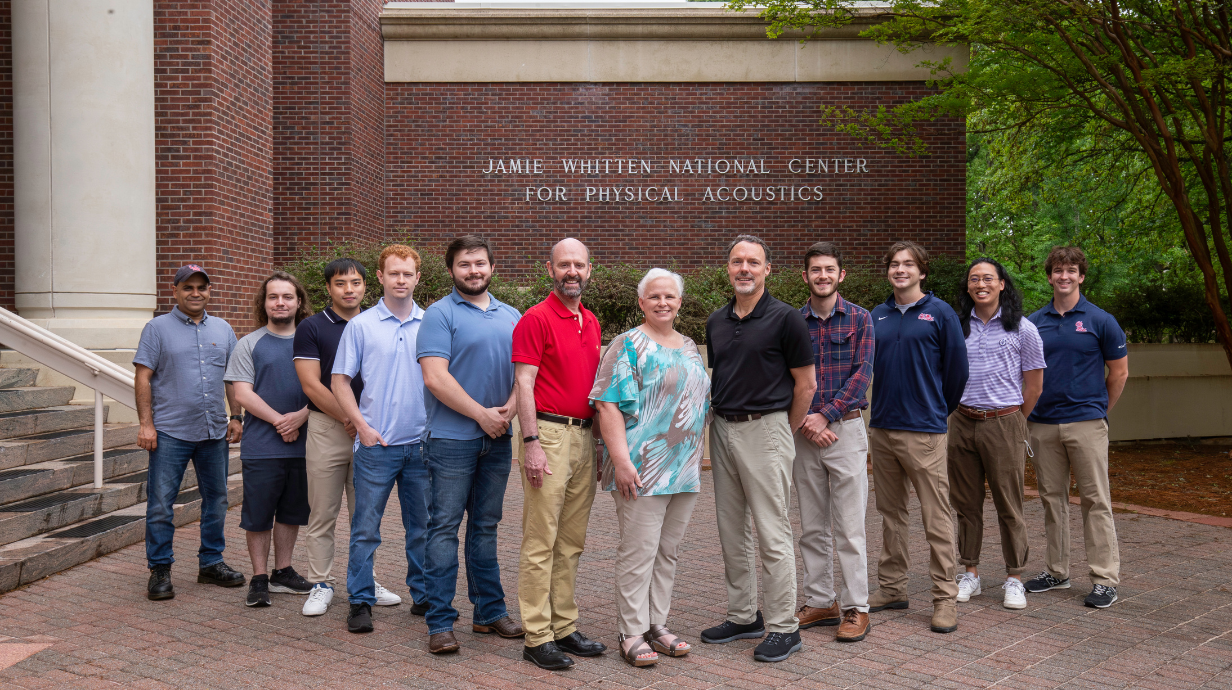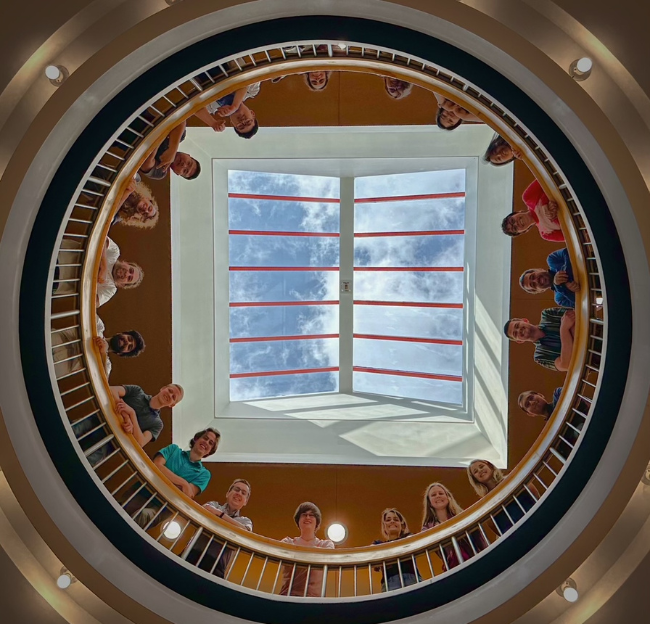Opportunities for Students
NCPA offers game-changing research opportunities that impact various industries for interested undergraduate and graduate students.

We are dedicated to advancing education in the physics of acoustics.
NCPA, while not an academic department of the University of Mississippi, employs both undergraduate and graduate students as research assistants. These roles offer students the opportunity to participate in immersive research projects and learning experiences.
Research Assistant Positions
For graduate students, the research assistant role can help students fulfill degree requirements through hands-on research in NCPA’s diverse programs, focusing on acoustics for their theses and dissertations. This experience provides valuable skills and expertise.
For undergraduates, it’s an opportunity to explore acoustics, deepen their academic experience, and potentially consider the field for future studies or careers.
Research assistants engage in both laboratory and fieldwork under the guidance of expert scientists, gaining practical knowledge and building connections with potential employers and colleagues, enhancing their career prospects.
We welcome students from a variety of academic backgrounds, including physics, engineering, computer science, biology, math, and chemistry.
Work with us!
To learn more about our current graduate and undergraduate opportunities, contact Jennifer Bennett at jhbennet@olemiss.edu.
Postdoctoral Research Positions
We offer postdoctoral research positions for scientists eager to advance their expertise and contribute to groundbreaking projects in physical acoustics. These roles provide a unique opportunity to work alongside seasoned experts and engage in various aspects of research, from experimental design and data analysis to fieldwork and policy review.
While specific duties vary depending on the research area, postdoctoral researchers at NCPA actively contribute to:
- Experimental research: Conducting experiments in both laboratory and field environments to explore acoustic phenomena.
- Data analysis: Identifying, collecting, analyzing, and synthesizing both quantitative and qualitative data to support research initiatives.
- Reviewing policies and programs: Examining and evaluating policies, procedures, and research programs to ensure alignment with best practices and objectives.
- Collaboration: Working with multidisciplinary teams, including engineers, scientists, and other specialists, to solve complex acoustical challenges.
- Publication and presentations: Contributing to research papers, presenting findings at conferences, and advancing the body of knowledge in acoustics.
- Mentoring: Assisting in the supervision of graduate and undergraduate students, fostering a collaborative learning environment.
In addition to conducting research, postdoctoral associates receive professional development support, including opportunities to network with academic and industry leaders.
Physical Acoustics Summer School (PASS)

NCPA offers the Physical Acoustics Summer School (PASS), which is designed for graduate students to explore the field of physical acoustics in-depth. Sponsored by Ole Miss/NCPA, the University of Texas at Austin, and the Acoustical Society of America, PASS is recognized as a premier event in the field, providing hands-on learning and opportunities to collaborate with leading experts.
The program brings together graduate students, esteemed lecturers, and discussion leaders to explore a wide range of topics in physical acoustics. It offers students a unique platform to connect with top professionals and delve into subjects that extend beyond their typical academic coursework.
The PASS Organizing Committee selects approximately eight lecture topics, with corresponding experts leading discussions and lectures throughout the program.
For inquiries, contact Debra Bos at dperrier@olemiss.edu.
For further details and to access the past information, visit NCPA PASS 2024.
